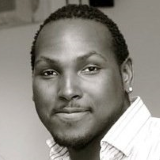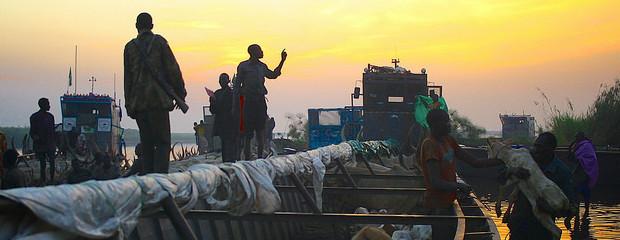What next for the PDP? – By Lagun Akinloye

 With less than a month until the swearing in of the government of President elect Muhammadu Buhari, the Nigerian political landscape is bracing itself for a seismic shift. For the first time since the return to democracy in 1999, the People’s Democratic Party (PDP) will not be in charge
With less than a month until the swearing in of the government of President elect Muhammadu Buhari, the Nigerian political landscape is bracing itself for a seismic shift. For the first time since the return to democracy in 1999, the People’s Democratic Party (PDP) will not be in charge
The resounding defeat of the PDP at the hands of Buhari and the All Progressive Congress (APC) at both presidential and state levels, has led to an abrupt end to the hegemony of the self-styled “˜Largest political party in Africa’ which once boasted it would rule Nigeria for 60 years.
Political advisor to outgoing President, Goodluck Jonathan, Professor Rufai Ahmed Alkali stated a few weeks after the PDP’s defeat that “Nigerians wanted a change and Nigerians got the change”.
Change is also certain to take place within the PDP, with those who have chosen to remain set to fight it out for the soul of the party, with a new leader bound to emerge. But as they lick their wounds, the once great PDP will have to start again.
Leadership starts from the top
The PDP was previously seen as the unstoppable behemoth of the Fourth Republic, winning every presidential election since the return of the multi-party federal system. Questions were continually asked before and after the polls if Jonathan had the political dexterity and nous to lead the PDP into an election against an impressive APC campaign structure which fed off the discontent of the masses and proved itself as being a more organised entity with broader local and international appeal.
Jonathan’s last ditch attempt at defeating Boko Haram was overshadowed by the already excessive bloodshed caused by the group and his inability to find and return the 219 kidnapped Chibok girls cast a further shadow over his administration. The critical state of the nation’s economy also helped in the displacing of Jonathan and the PDP from the corridors of power. The dramatic fall of the naira in the face of depreciating global oil prices saw the nation’s currency slump to N200 against the dollar for the first time. Rising levels of corruption, poverty, income inequality and unemployment all worked against the president as he went state to state selling his faulty candidacy, backed up by familiar and hollow promises.
“The PDP campaign placed an over reliance on money, ethnic politics and the incapacity of the Independent National Electoral Commission” says, James Schneider, the Editorial Director of the New African Magazine. “The administration’s inability to react quickly or reasonably to enormous national issues, especially the removal of the fuel subsidy, the economy and Boko Haram, undermined its competency.”
Sounding the political retreat
The 16 year rule of the PDP did not bring the much needed “˜transformation’ to everyday life that the Nigerians yearn for and they vented their frustration through the ballot box. The APC won 15,424,921 votes as against the PDP which garnered 12,853,162 votes, a winning margin of over 2 million. This is in sharp contrast to 2011 when Jonathan defeated the same candidate by more than 10 million votes.
The political change of fortunes were echoed at the state level and in the National Assembly with the PDP’s once unrivalled dominance being overturned as they now control only 13 out of 36 states with the APC leading with 22, whilst the All Progressives Grand Alliance (APGA) hold one. The country’s two largest states – Lagos and Kano – were both won by the APC, whilst Rivers State and the surrounding hydrocarbon producing regions which include Bayelsa, Akwa Ibom and Delta State remain PDP.
In the National Assembly a similar pattern followed with the PDP providing 49 lawmakers to the 8th sitting of the senate compared to the APC’s 60. The House of Representatives tells a similar story with the PDP holding 132 members and the APC maintaining a sizeable majority of 208, with 8 seats being claimed by other parties.
But it is at the state level where concern should really lie as the PDP now wear the look of a regional party with their only firm foothold being in the south-south and south east region of the country putting them at a numerical and political disadvantage.
Accusations and counter accusations have been fielded as to what or who led the PDP to electoral implosion. A former Special Adviser to President Jonathan on Political Affairs, Ahmed Gulak, recently called for the resignation of the PDP chairman Adamu Mu’azu, stating “There is no party chairman of the PDP since 1998 that has led the party to such a disastrous outing. As a result, the national chairman should consider himself one of those who have to give way for the new party to come up.”
Looking Inwards
All is not lost for the PDP as their defeat and current status as an opposition party has shown that the Nigerian political climate is positively evolving. Their nonchalance towards elections and over-confidence in their political machinery has come unstuck and in order to survive, an overhaul of the principal organs such as the National Executive Committee (NEC), and the National Working Committee (NWC) must take place. Aggrieved and core members need cajoling back into the fold alongside new, intelligent and positive politicians if they harbour any hopes of challenging the APC in 2019.
The shock of the PDP’s new found position is yet to wear off and there has been little mention of Jonathan’s potential replacement as the new leader of the party. It could be a mark of respect towards the outgoing president not to begin the jostling and horse-trading until he has officially stepped down. Yet there are still a few heavyweights within the party who would fancy their chances at leading the PDP into a new, but difficult, era.
Outgoing Senate President and longest serving senator in the Fourth Republic David Mark will have a larger say in party affairs, but the need to match the APC with a Northern Hausa-Fulani candidate will rule him out in the long term. Former Governor of Jigawa State, Sule Lamido who served as Foreign Minister under Olusegun Obasanjo, proved his loyalty to the party by remaining within its fold and not decamping to the APC alongside the 5 aggrieved governors in 2013. Lamido will view himself as a potential leader and might feel he has earned it. Others include former Governor of Bauchi and one time minister of transport and aviation, Isa Yuguda, who has always held ambitions of higher office. Former governor of Kano Ibrahim Shekarau, who crossed over from the APC to the PDP before the elections, might also be tempted to throw his hat in the ring. The possibility of ambitious middle ranking northern party members staking their claim alongside former PDP heavyweights who may find their back from the APC also remains relatively high.
As for Jonathan and what life holds for him after leaving office, there are talks of the Chairmanship of the PDP Board of Trustees being handed to him and a possible role with the United Nations in a peace envoy capacity. The $5m Mo Ibrahim Prize for African Leadership could also be within Jonathan’s grasp as his democratic stock has risen after his surprise concession of defeat to Buhari saved Nigeria from a possible outbreak of violence. Chime Asonye, Executive Director of NaijaDC, thinks Jonathan should “Play up his statesmanship by building up pan-African institutions like the African Union and helping to ensure that peace remains in places like the Niger Delta, a region he still curries a lot of favour.”
Tough times lie ahead for the PDP as the APC makes their transition into Nigeria’s dominant political party, but if a coherent and focused strategy for the future is fashioned out and a return to their grassroots and core values takes place, a resurgent PDP remains a possibility.
Lagun Akinloye is a journalist and Nigerian political analyst.







Well said, I’m not surprise at PDP’s defeat and I advise no one should. They were deluding themselves to think they would manacle Nigerians for 60 years, ruling Nigeria like their fiefdom. In a multi-party democracy, any party should aspire to win. This change will bring the needed national transformation (development) being craved for. The idea of one party ruling as if Nigeria is a one party state should be gone and no one should shed tears. PDP has failed the country for 16 years even though APC won’t be better because they are made of aggrieved and corrupt people. Again, they are strange bed fellows. The winning margin shows that those who voted for Buhari are anti-Jonathan than pro-Buhari – a serious problem he would have to face. But good article